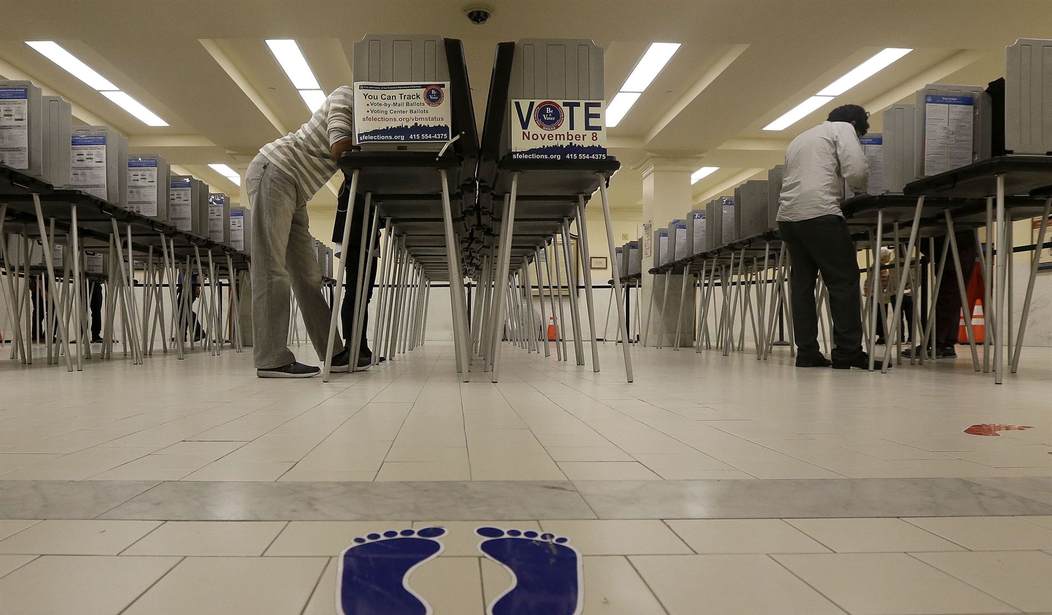The school board recall election results in San Francisco on Tuesday came as a shock to many on the left. Three perfectly diverse, perfectly woke school board members apparently never knew what hit them.
It wasn’t even close. Indeed, the electoral massacre of the radical left was part of a trend that has seen victories for normalcy over craziness in Seattle, Minneapolis, Virginia, and New York.
- In Seattle, voters elected Ann Davison city attorney. Davison resigned from the Democratic Party because it had veered “so far left.” She defeated a candidate who wanted to abolish the Seattle police.
- In Minneapolis, the radical city council cut the number of police by one-third and then complained when violent crime skyrocketed. Voters there defeated a measure to replace most of the city’s armed officers with social workers.
- In New York, voters elected Eric Adams, a former police officer who just presented a budget to the city council that slashed every single department—except the police department.
- Glenn Youngkin’s big win in Virginia was heavy with portent for the radical left, signaling that suburban parents are finished with social experiments and overly-controlling teacher’s unions. Worrisome for Democrats, these are exactly the kinds of voters who put Joe Biden in office and could lead a GOP revival in the big-city suburbs.
All of the above has taken place since the first of the year. Pollsters are telling us that voters are tired of COVID restrictions. What they’re missing is the quiet revolution being carried out by quiet people in the quiet corners of America.
It is foolish — and one of the bad habits of political prognosticators — to overinterpret the results of any one election. To be clear, San Francisco hasn’t changed. A city that gave Joe Biden 85% support won’t be voting Republican in the lifetime of any adult within sight of Coit Tower.
But the results are noteworthy precisely because the recall took place in liberal San Francisco. It’s not a case of pro-Trumpers seeking to ban books, or of conservatives stirring up unfounded concerns over critical race theory being introduced into grade schools. Parents of all political stripes have emerged as one of the most potent forces in campaigns and elections today, and woe to anyone seen as standing in the way of their kids’ education.
Liesl Hickey, a veteran GOP strategist, is calling 2022 the year of the angry K-12 parent.
“They are mad,” Hickey told the Cook Political Report’s Amy Walter, “and they want to hold someone accountable.”
Note to Democrats: “Angry” voters do not vote to continue the status quo.
David Leonhardt of the New York Times writes about “dividing lines” of race and class that are becoming blurred by the pandemic and the radical social policies being proposed.
Class seems to be at least as big a dividing line as race. College-educated Democrats — who dominate the ranks of politicians, campaign staffs and activist organizations — tend to be well to the left of working-class Democrats. By catering to its well-off base, the party creates electoral problems for itself, because there are more working-class Americans than college graduates.
You could see this dividing line in the New York mayor’s race. Adams won the Bronx, Brooklyn, Queens and Staten Island with a multiracial coalition, while losing affluent white neighborhoods. (Adams’s heterodox politics are common among Black Americans, the political scientist Christina Greer has written.)
You can also see the dividing line in San Francisco, where the city’s mayor, London Breed, who is Black, endorsed the recall. In an interview with Yahoo News this week, Breed said, “It breaks my heart that kids in our public school system still have to wear masks.”
From Breed’s point of view, if ya can’t beat ’em, join ’em. She’s the mayor and acts as if she has nothing to do with mask-wearing. Yikes.
It was inevitable that the revolt against radicalism would be missed by coastal elites, or misinterpreted as people exhausted by the pandemic. School board meetings across the country are becoming cauldrons of heightened emotion—anger, even rage—as school boards try to deal with the revolt.
It’s still not certain how all this raw emotion can be channeled into political action, or whether it can be useful at all. But this energy has to go somewhere and Democrats better pray it doesn’t land on their heads in November.










Join the conversation as a VIP Member